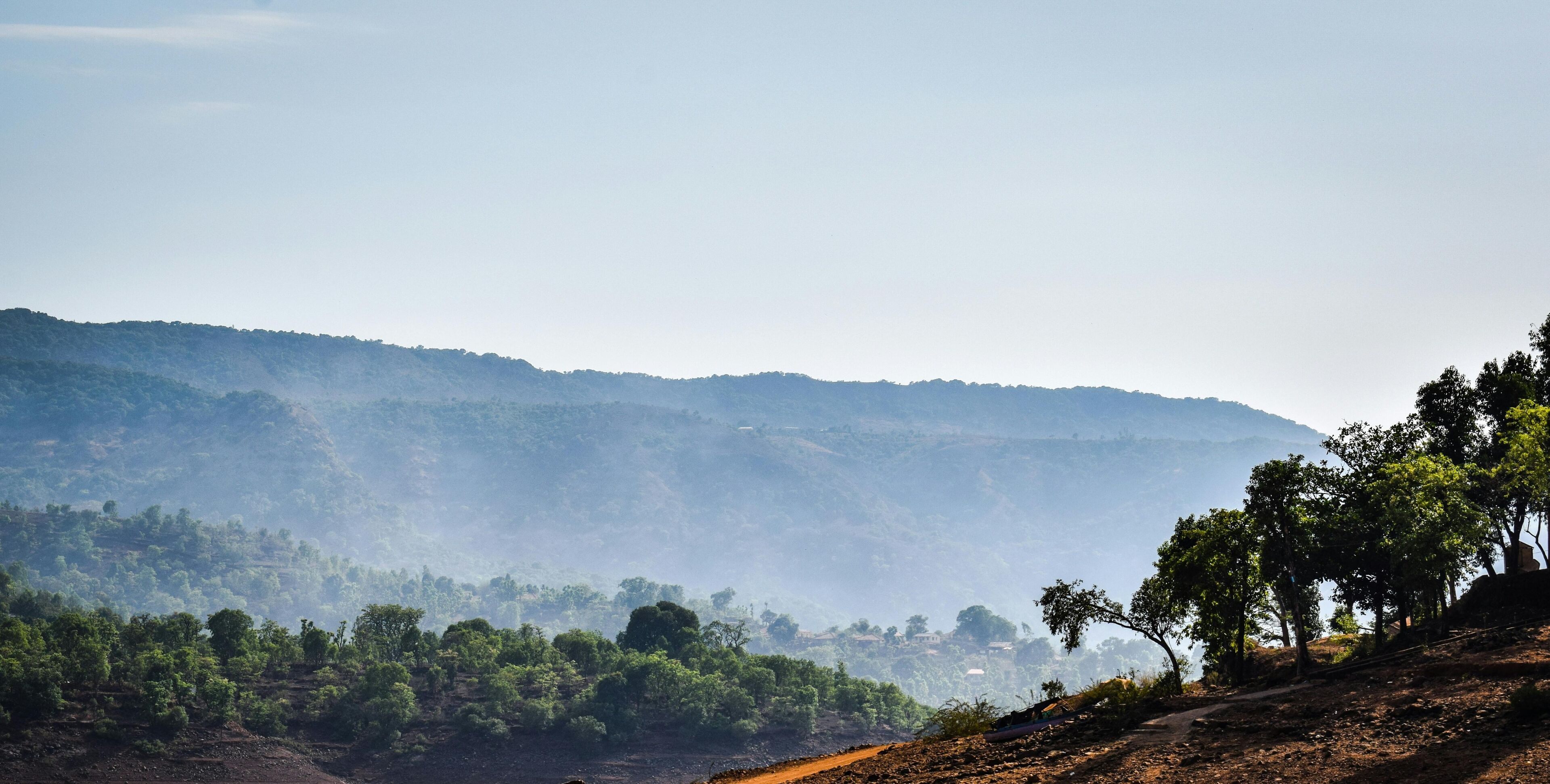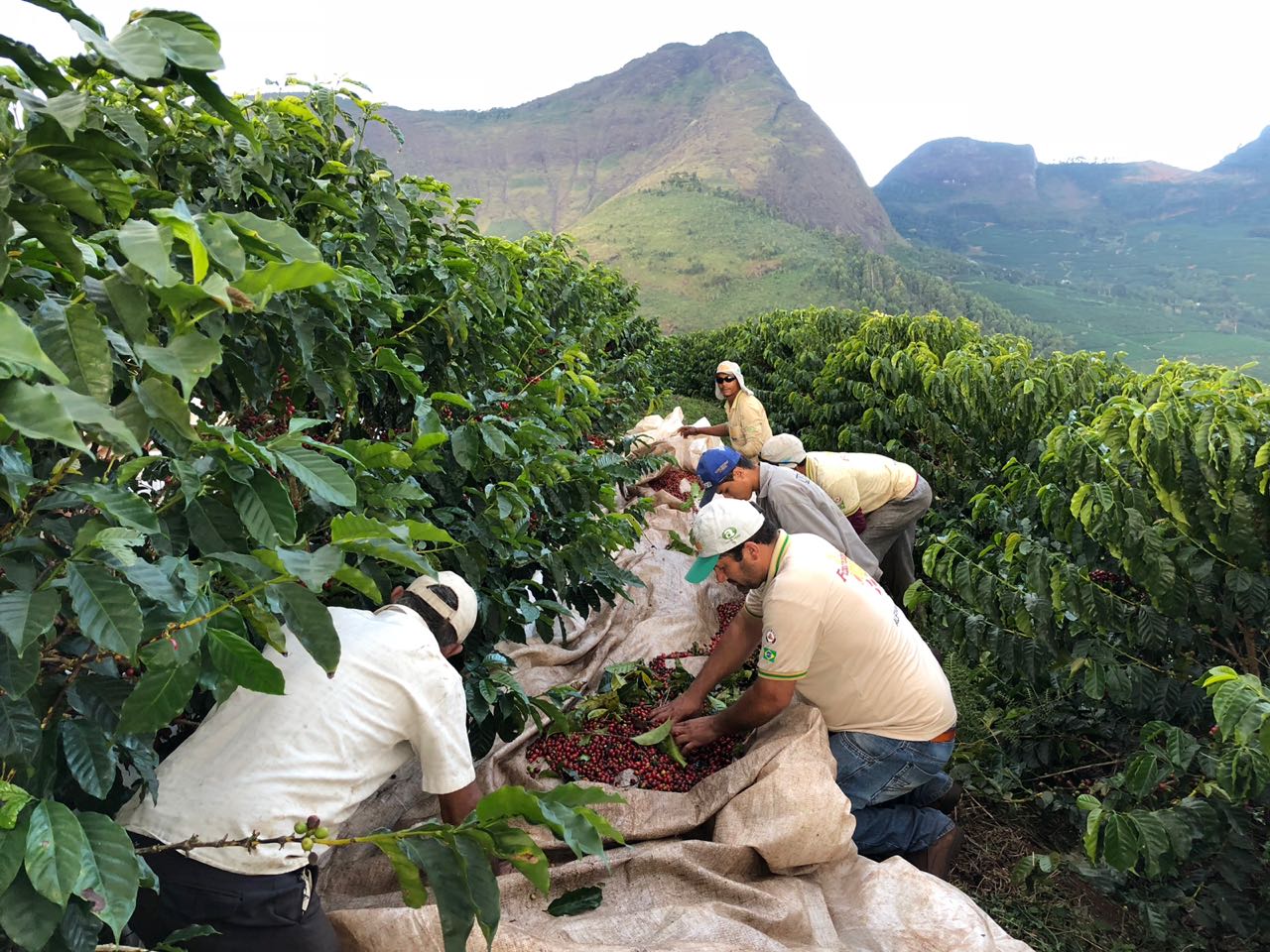
The critical situation in Brazil: a direct testimony from Felipe Croce of FAF
Our partner Felipe shares the latest climate news with us, in complete transparency. Solutions are possible.
Dear friends and partners,
I hope you are well and had a good weekend.
Today I would like to share with you an overview of the current situation in Brazil, regarding coffee production. The situation is worrying and deserves our full attention.
An unprecedented drought season
Since April, the main coffee-producing regions in Brazil have been hit by a severe drought. We have recorded very little rain: 10 mm on May 26, 15 mm on August 15 and only 2 mm on September 18. Although rain is finally starting to fall, the dry season has started a month earlier than usual, which has increased water stress on the plantations.
At the same time, temperatures have continued to rise. This year, it has not been uncommon to see temperatures around 34°C, even in the middle of winter. This intense heat increases evapotranspiration, putting additional pressure on crops. Some regions are doing better than others, but water deficits are significant: -18 mm in the Mantiqueira mountains, -190 mm in Varginha, and -300 mm in the worst-hit region, Alta Mogiana.
Impact on the 2025 harvest
Even if the rains returned today and all weather conditions were ideal by 2025, we are already estimating a 12 to 15% drop in the harvest. That’s a decrease of almost 8 million bags of coffee for the 2025 harvest. In the Alta Mogiana region, for example, which produces about 6 million bags per year, the losses will be drastic. With about 60% of the crops being rainfed, we are predicting a 40% reduction in production for these plantations, and even irrigated crops will suffer a decrease of about 10%.
The threat continues with 'La Niña'
The situation could get worse with the arrival of the 'La Niña' weather phenomenon, which usually brings drier conditions to our regions. High temperatures and lack of rainfall will affect not only the quantity of coffee produced, but also its quality. It is becoming increasingly difficult to obtain high-quality coffees in the local competitions and tastings we hold. However, there is a glimmer of hope: some of our partner farms, with whom we have been working for several years, are showing signs of improvement in terms of yield and quality.
Regenerative agriculture: a solution for the future
Faced with this crisis, regenerative agriculture is proving to be a promising response. On our farm, despite the youth of some systems (less than six years old), shaded plantations are doing much better than others. The effect of regenerative practices on climate resilience is already visible, with better water retention and reduced plant stress. This opens up interesting prospects for the future, even if we must continue to adjust our practices.
The current situation requires deep reflection from the entire coffee value chain. Failure to act would be a risky bet for the future. Together, through collaboration and sustainable practices, we hope to overcome these challenges and continue producing quality coffee, despite the climatic conditions.
Best regards,
Felipe Croce (FAF)
Another Brazil is possible
At Belco, we have made the decision to promote a different Brazilian coffee on a larger scale in Europe. The FAF partner farms we work with have very differentiating advantages for the specialty coffee industry. They are traditionally located in hilly areas, which do not extend over a thousand hectares without a single tree in sight, which makes mechanical harvesting almost impossible. The picking is therefore always done by hand in a selective manner, it is really this type of coffees and farms that we must promote.

Coffees to make a difference
To continue to encourage practices that limit global warming, we offer you a selection of Brazilian coffees transported by sail.
Spot price
€/kg
Spot price
€/kg
Spot price
€/kg
Spot price
€/kg
Spot price
€/kg
Spot price
€/kg
Spot price
€/kg
Did you like this article? Share it with your community:
